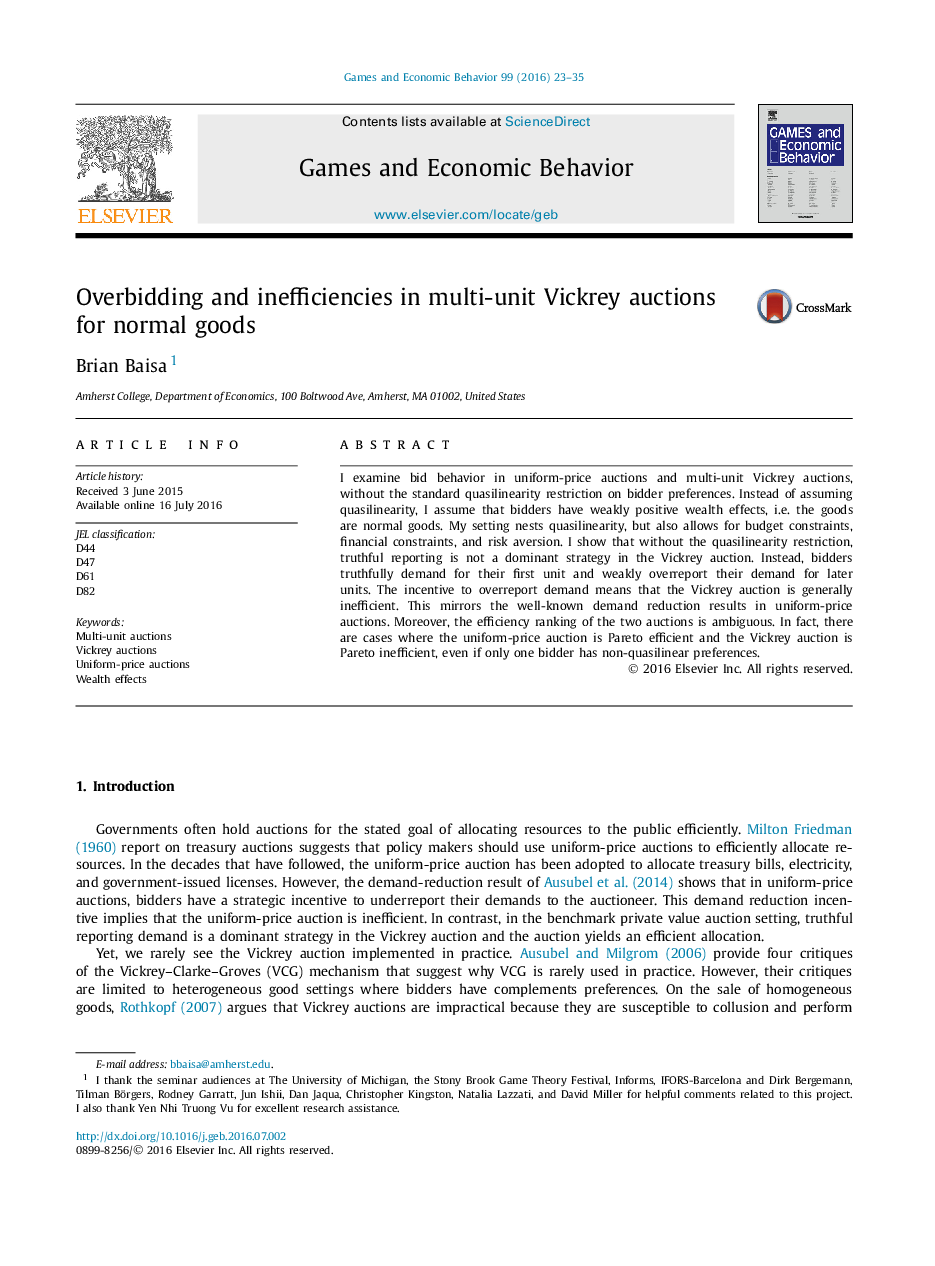| Article ID | Journal | Published Year | Pages | File Type |
|---|---|---|---|---|
| 5071508 | Games and Economic Behavior | 2016 | 13 Pages |
Abstract
I examine bid behavior in uniform-price auctions and multi-unit Vickrey auctions, without the standard quasilinearity restriction on bidder preferences. Instead of assuming quasilinearity, I assume that bidders have weakly positive wealth effects, i.e. the goods are normal goods. My setting nests quasilinearity, but also allows for budget constraints, financial constraints, and risk aversion. I show that without the quasilinearity restriction, truthful reporting is not a dominant strategy in the Vickrey auction. Instead, bidders truthfully demand for their first unit and weakly overreport their demand for later units. The incentive to overreport demand means that the Vickrey auction is generally inefficient. This mirrors the well-known demand reduction results in uniform-price auctions. Moreover, the efficiency ranking of the two auctions is ambiguous. In fact, there are cases where the uniform-price auction is Pareto efficient and the Vickrey auction is Pareto inefficient, even if only one bidder has non-quasilinear preferences.
Related Topics
Social Sciences and Humanities
Economics, Econometrics and Finance
Economics and Econometrics
Authors
Brian Baisa,
